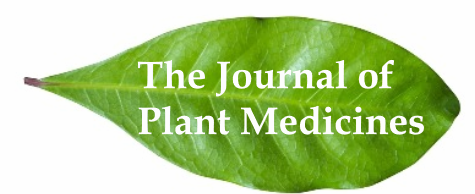Ashwagandha Improves Thyroid Levels in Early Hypothyroidism

Ashwagandha Root balanced thyroid hormone levels in clinical study.
Low thyroid hormone levels, also called hypothyroidism, can be improved by supplementing with ashwagandha root extract according to a recent clinical study.
Today, many women, especially as estrogen levels drop, are being diagnosed with hypothyroidism. A 2018 study of 50 hypothyroid women shows that ashwagandha can significantly boost thyroid levels.
Ashwagandha (Withania somnifera) is an Ayurvedic herbal medicine used for thousands of years, and has been prescribed for thyroid dysfunctions in traditional medicines.
In this article
Ashwagandha helps subclinical hypothyroidism
The 2018 study was published in the Journal of Alternative and Complementary Medicine.
The study tested blood levels of TSH, T3 and T4 in the women before and after the trial. The researchers divided 50 subclinical hypothyroid women into two groups. They gave one group ashwagandha and the other group was given a placebo. After eight weeks, the researchers found that ashwagandha boosted levels of TSH, T3 and T4.
This study was a randomized, double-blind, single-center placebo-controlled study. It was conducted at the Sudbhawana Hospital in Varanasi, India during 2016. The test subjects had serum thyroid stimulating hormone (TSH) levels between 4.5 and 10 μIU/L. They were between 18 and 50 years old. Half the group was given 600 milligrams of ashwagandha root extract each day. The other half were given a placebo.
After eight weeks of treatment with ashwagandha significantly balanced levels of TSH, T3 and T4 in the women. Only one woman complained of any adverse effects in the ashwagandha group, while three women complained of adverse effects in the placebo group.
The researchers concluded:
“Treatment with ashwagandha may be beneficial for normalizing thyroid indices in subclinical hypothyroid patients.”
What is subclinical hypothyroidism?
Up to one in ten women have subcliical hypothyroidism. Low levels of circulating thyroid-stimulating hormone (TSH) along with lower levels of T3 and T4 is considered clinical hypothyroidism. Subclinical hypothyroidism is when levels of TSH are a little higher while T3 and T4 levels are normal. Typically, these slightly higher TSH levels will eventually lead to clinical hypothyroidism later on. Less frequently, subclinical hypothyroidism with higher TSH levels can also lead to hyperthyroidism.
Even if subclinical hypothyroidism doesn’t develop into overt hypothyroidism, it is still bad for a woman’s health. A 2017 study from the Illinois Masonic Medical Center found that subclinical hypothyroidism was linked to an increased risk of heart disease deaths.
Subclinical hypothyroidism is of particular interest in natural healing strategies because hormone levels have not reached the problematic stage. This means we’re dealing in the realm of preventative medicine.
Selenium supplementation and subclinical hypothyroidism
Another strategy to consider in addition to ashwagandha is selenium. In a 2016 study, researchers from Italy’s University of Brescia were given selenium supplements or not. After four months of supplementing with 83 mcg of selenomethionine, the researchers found the selenium restored normal levels of TSH in nearly a third (31 percent) of the patients. The researchers concluded:
“Selenium supplementation could restore euthyroidism in one third of subclinical hypothyroidism patients with autoimmune thyroiditis.”
Hypothyroidism explained
The thyroid is located in the neck. When the thyroid doesn’t produce enough thyroid hormones, this is diagnosed as hypothyroidism. As women age, their risk of hypothyroid increases, and women older than 60 years often become hypothyroid.
Symptoms include dry skin, weight gain, cold sensitivity, muscle weakness, memory impairment, achy muscles, thinning hair and others.
A number of things can cause hypothyroidism, including medications, pregnancy, radiation, autoimmunity, and pituitary problems – not producing enough TSH. A common cause of hypothyroidism is a lack of iodine in the diet.
Iodine sources include seaweeds, many vegetables, iodized salt and supplements.
Ashwagandha root can help over 50 medical conditions according to other research. Chamomile tea is also good for the thyroid.
Scientific References
Sharma AK, Basu I, Singh S. Efficacy and Safety of Ashwagandha Root Extract in Subclinical Hypothyroid Patients: A Double-Blind, Randomized Placebo-Controlled Trial. J Altern Complement Med. 2018 Mar;24(3):243-248. doi: 10.1089/acm.2017.0183.
Pirola I, Gandossi E, Agosti B, Delbarba A, Cappelli C. Selenium supplementation could restore euthyroidism in subclinical hypothyroid patients with autoimmune thyroiditis. Endokrynol Pol. 2016;67(6):567-571. doi:10.5603/EP.2016.0064.
Hassan A, Altamirano-Ufion A, Zulfiqar B, Boddu P. Sub-Clinical Hypothyroidism and Its Association With Increased Cardiovascular Mortality: Call for Action. Cardiol Res. 2017 Apr;8(2):31-35. doi: 10.14740/cr524w.
Hypothyroidism (underactive thyroid). Mayo Clinic.





























